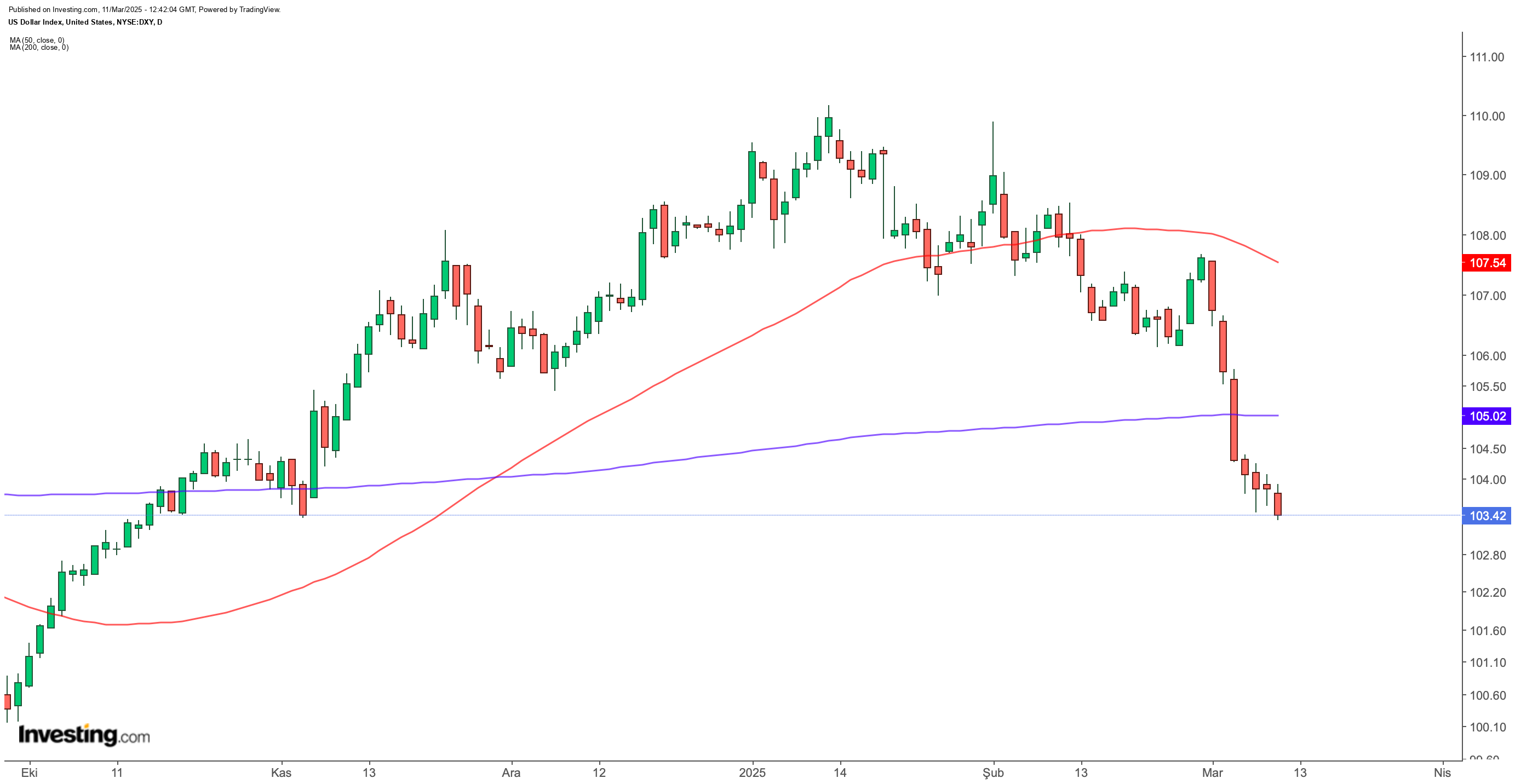Is the dollar losing its safe-haven status? Markets are following Trump's moves.
Uncertainties regarding U.S. President Donald Trump's trade policies and recession concerns continue to weaken the dollar's safe haven status.
According to experts, Trump's indication that the economy will experience a "transition period" and plans to impose additional tariffs negatively affect investors' risk appetite. This situation leads to a weakening of the support derived from the dollar's safe haven status.

The dollar index at its lowest level in 20 weeks
The dollar index (DXY) fell to 103.329 today, reaching its lowest level in the last 20 weeks. Concerns about the U.S. growth outlook and selling pressure in the markets accelerated the downward movement of the dollar.
The dollar lost value particularly against the Japanese yen and the Swiss franc, while the euro and British pound rose with expectations of potential increases in defense spending.
The euro rose on expectations of increased defense spending in Germany
The euro reached its highest level in four months on expectations that an agreement could be reached to increase defense spending in Germany. Franziska Brantner, co-chair of Germany's Green Party, stated in an interview with Bloomberg that they are open to negotiations to increase government borrowing to raise the defense budget.
Following this statement, the euro rose to 1.0920 against the dollar during European trading hours today. The euro has increased by 0.66% against the dollar in the last hour. The rise in the euro is thought to be due to the market's positive reaction to Germany's steps to increase defense spending.
Concerns about the U.S. economy are weakening the dollar
Concerns about a slowdown in the U.S. economy are increasing pressure on the dollar. The Nasdaq index in the U.S. lost nearly 4% on Monday, while the S&P 500 index fell by 2.7%. Chris Weston, Director of Research at Pepperstone, stated, “Normally, increasing market volatility would support the dollar. However, this time the issue is the U.S. economy itself, which is increasing pressure on the dollar.”
The difference in 10-year bond yields between the U.S. and Germany has narrowed by approximately 40 basis points in the last week. Similarly, the yield difference between the U.S. and Japan has also decreased by 20 basis points. This situation reduces the attractiveness of the dollar due to rising global yields while U.S. yields are falling.


